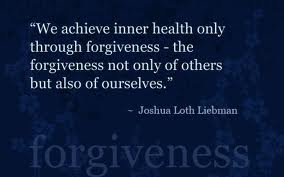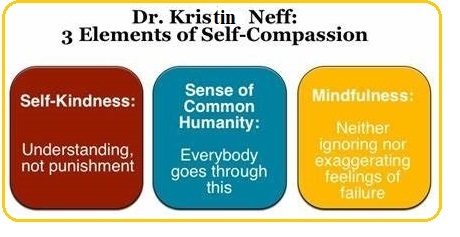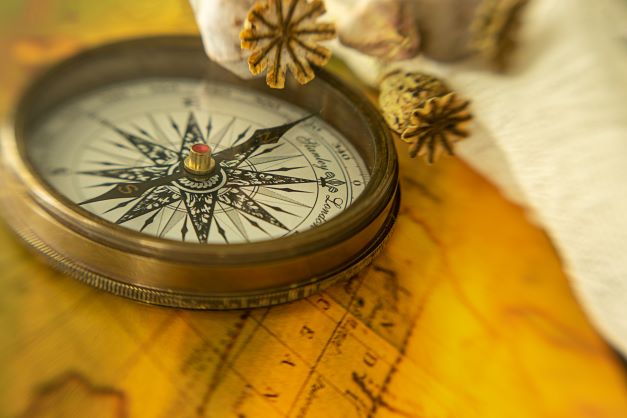Self-Forgiveness
Forgiving yourself is an opportunity to get rid of pain and anger that has built up over time. Forgiveness moves you from focusing on a past hurt into the present. You may not forget the hurtful event, but you can move on with your life.
moves you from focusing on a past hurt into the present. You may not forget the hurtful event, but you can move on with your life.
If you’re truly serious about self-forgiveness, we encourage you to follow the path to forgiveness that Dr. Robert Enright outlines in his self-help book Forgiveness is a Choice: A Step-by-Step Process for Resolving Anger and Restoring Hope. We further recommend Chapter 7 (Key 7) “Learn to Forgive Yourself” in Dr. Enright’s book, 8 Keys to Forgiveness.
 Self-Compassion Quiz – What goes through your mind when you’ve made a mistake, or are just feeling down? Does your inner voice sound like a caring, supportive friend—or like a pestering, harsh critic? This quiz is designed to help you find out how self-compassionate you are. It’s based on the scientifically validated Self-Compassion Scale developed by Kristin Neff at the University of Texas, Austin. Click here to take the quiz on the Greater Good Science Center website.
Self-Compassion Quiz – What goes through your mind when you’ve made a mistake, or are just feeling down? Does your inner voice sound like a caring, supportive friend—or like a pestering, harsh critic? This quiz is designed to help you find out how self-compassionate you are. It’s based on the scientifically validated Self-Compassion Scale developed by Kristin Neff at the University of Texas, Austin. Click here to take the quiz on the Greater Good Science Center website..
Self-Care for Your Mental Health

(Image by StockSnap.io)
The significant benefits of forgiveness are of little use to you if you aren’t around to embrace them. That’s where self-care comes in. Here are some basic tips from Brad Krause–self-care guru, writer and life coach:
Self-care encompasses all the actions you do every day to keep yourself in good health, such as exercise, eating well, and brushing your teeth. However, it also includes the smaller, overlooked things you can do to help with your mental health. These are not always obvious to us, so it is useful to reevaluate our habits and routines to gear them toward a happier, less stressful life.
Take Time to Relax
This is perhaps the most important act of self-care you can do for your mental well-being. Set some time aside every day for unwinding but be mindful of what you choose to do. For many people, relaxing means binging a TV show, playing a video game, or browsing the web, which does not allow us to truly unwind.
This is why taking just 15-20 minutes to sit in absolute silence and focus on your breathing can be extremely beneficial for your well-being. If you can, create a dedicated space in your home for this, away from distractions and other people. Make it as comfortable and soothing as possible and make sure no one can interrupt you during your mindfulness practice. Read the entire list of self-care tips here.
Read more about self-care:
- 15 Proven Tips to Get Better Sleep
- 12 Ways to Take Better Care of Yourself (Psychology Today)
- The Road to a Healthier Life in Your Golden Years
- Self-Care Strategies for Cancer Patients
- How Your Feet Affect Your Health and Quality of Life
Practice Self-Therapy
Self-therapy refers to psychotherapy we can conduct on ourselves, without the intervention or assistance of a therapist in order to deal with emotional or personal problems. Multiple studies have shown that a wide variety of self-therapy practices can help reduce stress and improve your mood.
have shown that a wide variety of self-therapy practices can help reduce stress and improve your mood.
To help you take advantage of these benefits, a website called turbotenant.com has created a beginner’s guide on using self-therapy that covers what self-therapy is and why it’s effective, along with beginner-level tips for improving mental, physical, and spiritual wellness: 15 Self-Therapy Tips.
Find a Helping Professional

(Image by StockSnap.io)
If you want to find a psychologist or other helping professional to work with, check out this informative fact sheet from the American Psychological Association called How to Choose a Psychologist. Keep in mind that looking for a therapist is a lot like dating. You have to meet a few different ones before you find your perfect match.
Here is a helpful article called How Do I Find a Therapist Near Me? And here is a list of 14 Therapist-Approved Tips for Finding a Therapist You Can Trust. As an additional option, read Reasons to Choose an Online Therapist.
For a more comprehensive approach, consider this 5-part feature entitled A Beginner’s Guide to Therapy:
- Part 1: How to find a therapist
- Part 2: What to ask in the consult
- Part 3: What to expect in the first few sessions
- Part 4: How can you tell if therapy is working
- Part 5: How to end therapy
With that information in hand, you can then ask your physician or another health professional for a reliable psychologist or counselor. Call your local or state psychological association. Consult a local university or college department of psychology. Ask family and friends. Contact your area community mental health center. Inquire at your church or synagogue. Or, use one of these services to find a counselor in your area: 1) The American Psychological Association’s Psychologist Locator service; 2) the online directory of counselors maintained by Psychology Today called Find a Therapist; 3) fill out a brief questionnaire at BetterHelp.com to get matched to one of BetterHelp’s 2,000+ licensed therapists across the country, all of whom possess a minimum of 3 years and 2,000 hours of hands-on experience; or, 4) read Best Online Therapy Programs of 2022: Reviews and Pricing on the website Everyday Health.
FOR IMMEDIATE HELP
If you feel you are in a crisis, or if you or any other person may be in danger, please contact one of these Crisis Resources for immediate assistance in the US or around the world.
Additional How-to-Forgive Resources
- Learn a step-by-step approach to Forgiving Others.
- Preserve you loving relationships or your marriage with Forgiveness for Couples.
- Help an elderly or dying person find peace with Forgiveness for Senior Citizens – End of Life.
- Become a “Peace Builder” by signing The Forgiveness Pledge.



